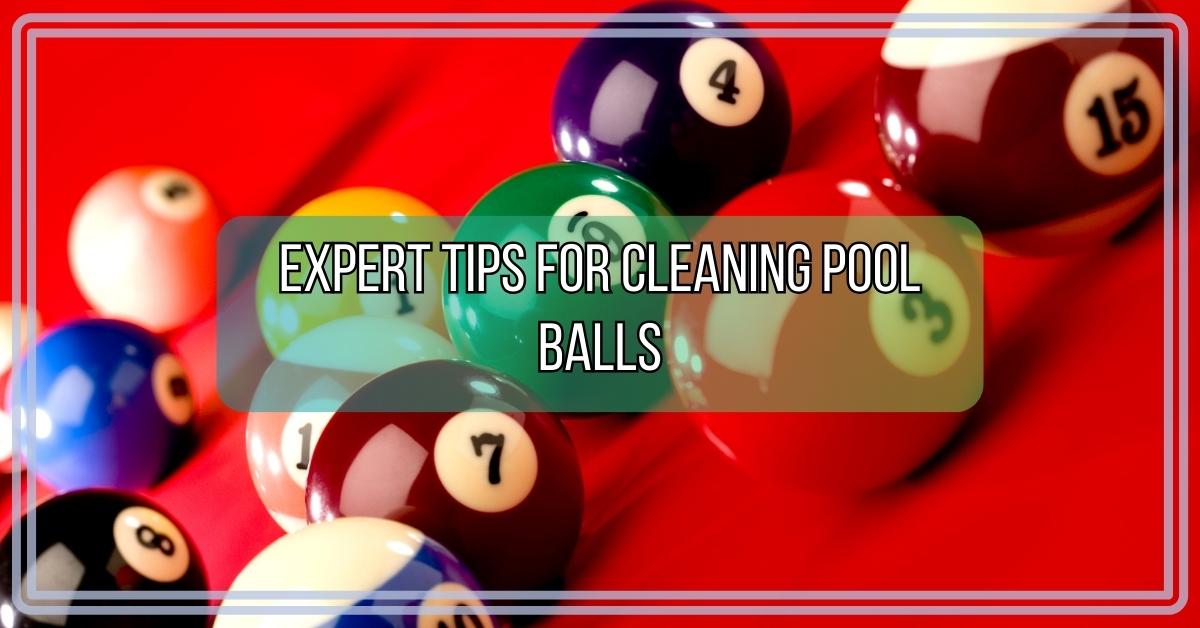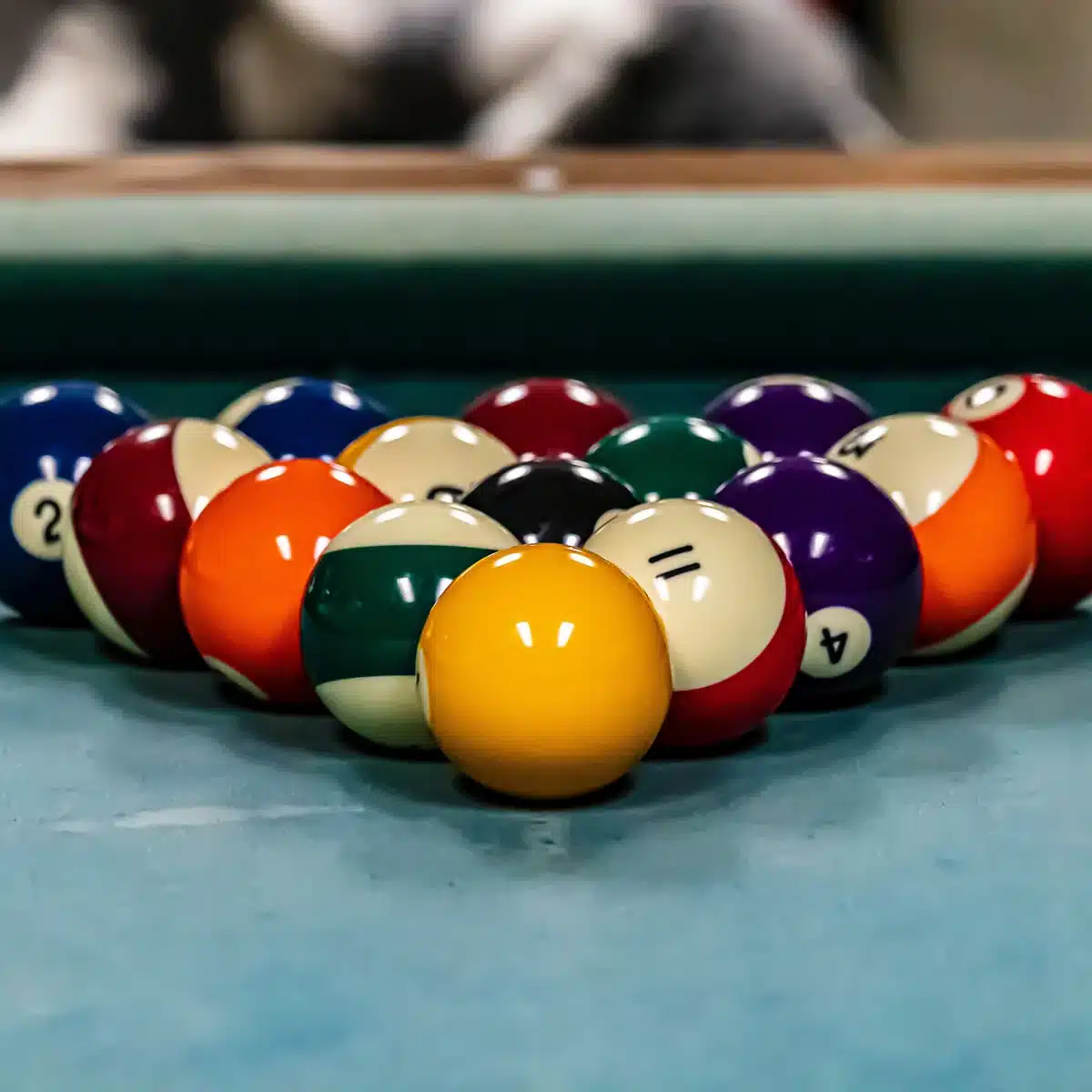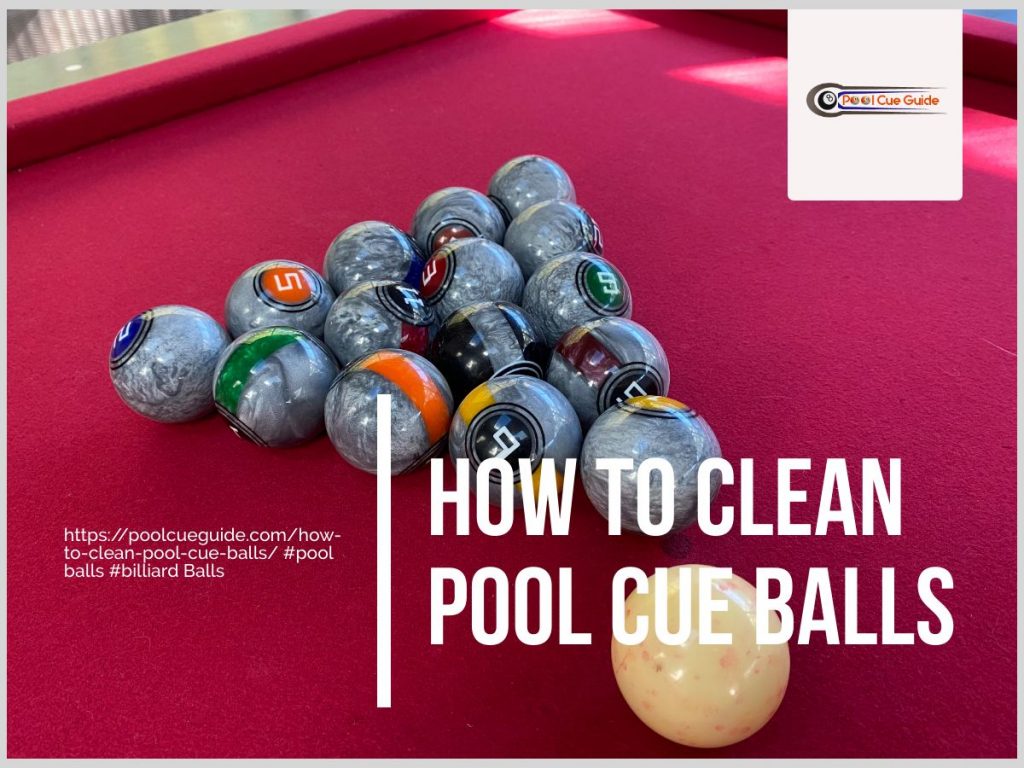There’s nothing worse than playing a game of pool with dirty pool balls. Over time, these balls can accumulate dirt, grime, and chalk residue, affecting their performance and appearance. Cleaning pool balls at home is not only cost-effective but also ensures they last longer and maintain their quality. In this article, we’ll explore the best methods to clean your pool balls effectively, ensuring they look as good as new and perform optimally during gameplay.
Whether you're a casual player or a professional, maintaining clean pool balls is essential for enhancing your overall pool experience. Dirty balls can lead to inaccurate shots, uneven rolling, and even damage to your pool table. By following the steps outlined in this guide, you can ensure your pool balls are always in top condition.
In addition to improving gameplay, regular cleaning helps prevent scratches and scuffs that can accumulate over time. This guide will cover everything from understanding the materials used in pool balls to the best cleaning solutions and techniques. Let’s dive in!
Read also:Janet Von Schmeling A Comprehensive Look At Her Life Achievements And Legacy
Understanding Pool Balls and Why Cleaning Matters
Pool balls are typically made from high-quality materials such as phenolic resin or polyester resin. These materials are chosen for their durability and resistance to wear and tear. However, even the best materials can become dirty or damaged if not properly maintained.
Regular cleaning is crucial for several reasons:
- Improves the aesthetic appeal of the balls.
- Enhances gameplay accuracy and consistency.
- Prolongs the lifespan of the balls.
- Prevents damage to the pool table surface.
Ignoring the cleanliness of your pool balls can lead to costly replacements and a frustrating gaming experience. Therefore, it’s important to establish a routine for cleaning and maintenance.
Daftar Isi
- Tools and Materials Needed
- Method 1: Using Warm Water and Dish Soap
- Method 2: Vinegar and Baking Soda Solution
- Method 3: Commercial Pool Ball Cleaner
- Polishing Your Pool Balls
- Proper Storage Techniques
- Additional Tips for Maintaining Clean Pool Balls
- Frequently Asked Questions
- Safety Precautions
- Conclusion
Tools and Materials Needed
Before you begin cleaning your pool balls, it’s important to gather the right tools and materials. Here’s a list of what you’ll need:
- Gloves (optional but recommended)
- A soft cloth or microfiber towel
- Dish soap or mild detergent
- Vinegar and baking soda (for alternative cleaning methods)
- A commercial pool ball cleaner (if preferred)
- A bucket or basin for soaking
- Warm water
Having these items on hand will make the cleaning process easier and more effective. Let’s now explore the various methods you can use to clean your pool balls at home.
Method 1: Using Warm Water and Dish Soap
This is one of the simplest and most effective ways to clean pool balls at home. Follow these steps:
Read also:Miranda Cosgrove A Rising Star In The World Of Entertainment
Step 1: Prepare the Solution
Fill a bucket or basin with warm water and add a few drops of dish soap. Mix the solution until it forms a light lather. This solution is gentle enough to clean the balls without causing any damage.
Step 2: Soak the Balls
Place the pool balls into the soapy water and let them soak for about 10-15 minutes. This allows the soap to penetrate any dirt or grime on the surface of the balls.
Step 3: Scrub Gently
Using a soft cloth or microfiber towel, gently scrub the surface of each ball. Pay special attention to areas with visible dirt or chalk residue. Avoid using abrasive materials, as they can scratch the surface of the balls.
Step 4: Rinse and Dry
Once the balls are clean, rinse them thoroughly with clean water to remove any soap residue. Pat them dry with a clean towel and allow them to air dry completely before using them again.
Method 2: Vinegar and Baking Soda Solution
If your pool balls are particularly dirty or have stubborn stains, a vinegar and baking soda solution can be an effective alternative. Here’s how to use it:
Step 1: Create the Solution
Mix equal parts of white vinegar and water in a bucket or basin. Add a tablespoon of baking soda to the mixture and stir until it dissolves. This solution is slightly more powerful than dish soap and can tackle tougher stains.
Step 2: Soak and Scrub
Soak the pool balls in the solution for about 15-20 minutes. After soaking, use a soft cloth to scrub the surface of each ball. The combination of vinegar and baking soda will help break down any stubborn dirt or grime.
Step 3: Rinse and Dry
Rinse the balls thoroughly with clean water and dry them with a clean towel. Allow them to air dry completely before using them again.
Method 3: Commercial Pool Ball Cleaner
For those who prefer a hassle-free solution, commercial pool ball cleaners are available on the market. These cleaners are specifically designed to clean pool balls without causing any damage.
Step 1: Choose the Right Cleaner
Look for a cleaner that is safe for use on phenolic or polyester resin balls. Read the instructions carefully to ensure you’re using the product correctly.
Step 2: Apply the Cleaner
Spray the cleaner onto the surface of each ball and let it sit for the recommended amount of time. Use a soft cloth to gently scrub the surface, ensuring all dirt and grime are removed.
Step 3: Rinse and Dry
Rinse the balls with clean water to remove any cleaner residue and dry them thoroughly with a clean towel. Allow them to air dry completely before using them again.
Polishing Your Pool Balls
After cleaning, you may want to polish your pool balls to restore their shine and luster. Here’s how:
- Use a dedicated pool ball polish or a high-quality car wax.
- Apply a small amount of polish to a soft cloth and rub it onto the surface of each ball in circular motions.
- Allow the polish to dry for a few minutes before buffing it off with a clean cloth.
Polishing not only enhances the appearance of your pool balls but also helps protect them from future dirt and grime.
Proper Storage Techniques
Proper storage is just as important as cleaning when it comes to maintaining the condition of your pool balls. Here are some tips:
- Store the balls in a cool, dry place away from direct sunlight.
- Use a dedicated pool ball case or container to protect them from dust and debris.
- Check the balls regularly for signs of wear and tear, and address any issues promptly.
By storing your pool balls correctly, you can extend their lifespan and maintain their quality for years to come.
Additional Tips for Maintaining Clean Pool Balls
Here are some additional tips to help you keep your pool balls clean and in good condition:
- Wipe down the balls after every game to prevent dirt buildup.
- Use a clean chalk holder to minimize chalk residue on the balls.
- Avoid playing on dirty or dusty pool tables, as this can cause scratches and scuffs.
- Regularly inspect the balls for cracks or chips and replace them if necessary.
Following these tips will ensure your pool balls remain in excellent condition and provide you with an enjoyable gaming experience.
Frequently Asked Questions
Q: How often should I clean my pool balls?
A: It’s recommended to clean your pool balls at least once a month, or more frequently if they’re used heavily. Regular cleaning helps prevent dirt buildup and maintains their performance.
Q: Can I use regular soap to clean pool balls?
A: Yes, you can use mild dish soap to clean pool balls. However, avoid using harsh chemicals or abrasive materials, as they can damage the surface of the balls.
Q: What should I do if my pool balls are scratched?
A: If your pool balls are scratched, you can try using a fine-grit sandpaper to gently buff out the scratches. Alternatively, consider replacing the balls if the damage is too severe.
Safety Precautions
When cleaning pool balls, it’s important to take certain safety precautions:
- Wear gloves to protect your hands from harsh chemicals.
- Work in a well-ventilated area, especially when using commercial cleaners.
- Dispose of cleaning materials properly to avoid environmental harm.
By following these precautions, you can ensure a safe and effective cleaning process.
Conclusion
Cleaning pool balls at home is a simple yet essential task for any pool enthusiast. By following the methods outlined in this guide, you can ensure your pool balls remain clean, shiny, and in excellent condition. Regular cleaning not only enhances gameplay but also prolongs the lifespan of your balls, saving you money in the long run.
We encourage you to try these methods and share your experience in the comments below. Don’t forget to check out our other articles for more tips and tricks on maintaining your pool equipment. Happy cleaning and enjoy your games!


